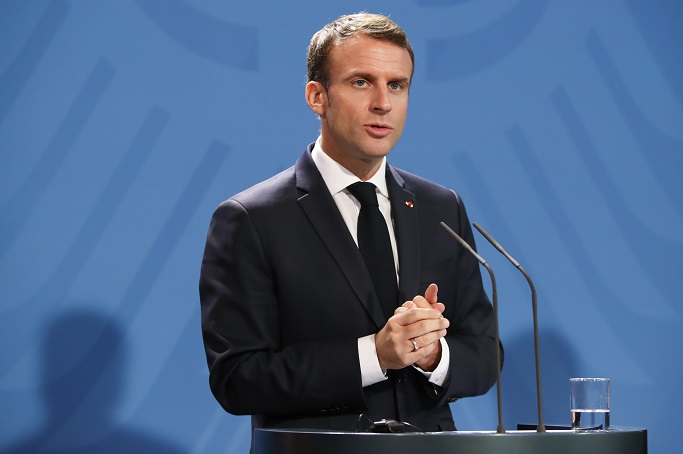Macron wants constitutional reform this summer
Published : 25 Apr 2019, 22:38
French President Emmanuel Macron said Thursday that he wants constitutional reform to come back to the parliament this summer, in response to months of Yellow Vest protests.
Macron proposed a new batch of measures, including significant cut in income tax and better citizens' participation in democratic process, in hope to regain public love.
Admitting "a deep feeling of tax, territorial and social unfairness", Macron promised to significantly reduce income tax, which he said would be financed by eliminating certain loopholes, squeezing public expenditure and "the need to work more".
He also announced that pensions below 2,000 euros would be linked to inflation, in addition tax-free end-of-year bonus, would be proposed so that "work pays".
In a rare meeting with the media, the French president said that he eyed a deep change in the country's democratic process and administrations following growing critics accusing him of being out of touch.
In order to shag off this tag, he proposed constitutional reform to make people more involved in the democratic process by simplifying rules for referendums and decentralizing administrations.
"At the democratic level, citizens want to be better represented, to participate more," he said.
Rejecting the referendum of citizens' initiative (RIC), one of the "Yellow Vest" key requests, Macron proposed easier rules to hold a referendum of shared initiative, reduce the number of parliamentarians and limit the number of mandates over time.
Adding to that, he pledged to reform the Economic, Social and Environmental Council in Council to allow better participation of citizens that will be chosen during a drawing of lot.
From the month of June, 150 people will be appointed, he promised.
Macron also proposed to open an "act II of decentralization", by 2020 which "should focus on housing, transport, ecological transition".
Macron's new bulk of measures came as the "Yellow Vest" movement is coordinating a 24th weekend of action against his leadership and his policy.
The spontaneous movement started in November of 2018 as a campaign against a surge in fuel prices. It then evolved into a social rebellion demanding the president to step down.
Since then, the 41-year-old head of state, once France's political start, has been struggling to defuse anger despite 10 billion euros of concession he offered by the end of last year.


